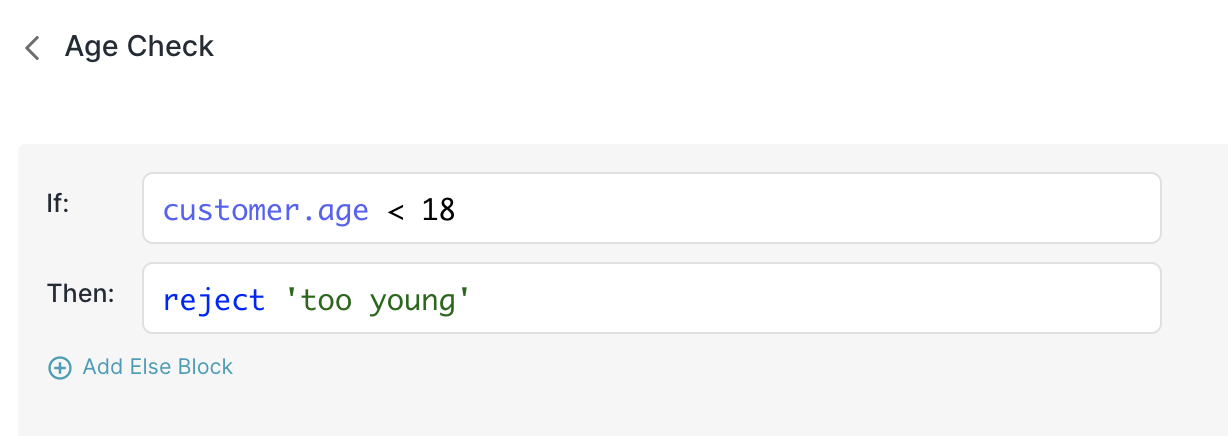Then and Action Cells
Actions fire when the Conditions preceding them are true. You can set a variety of Actions in your If/Then, Decision Table, and Matrix rules, including:
Change Workflow Outcome - Approve or Reject
Every time a workflow runs, it returns a Result (Approve, Reject, Investigate). By default, your workflow will return an Approve Result, however you can change this by setting the status in a rule.
When you call Approve or Reject in one of your Rules, the Workflow will stop executing immediately. You'll need to provide a Reason String, to make it easier for other folks on your team to understand what's happening. For example:

Trigger an Alert
You can trigger an Alert for manual review by calling the Alert keyword with one of the Alert Types you've set up for this workflow - learn more here

When your Alert fires, the Workflow will stop Executing and return with a status of Investigate
Set Custom Variables
Many workflows involve calculating variables, for example risk scores, risk tiers, or interest rates. You can simply type a new variable name and set it equal to a string, number, or boolean (true/false); then you can reference it in future rules - learn more here

Breakout to new path
You can jump to other branches of a Workflow using a breakout rule. You can create a new breakout rules by either dragging new logic blocks onto the graph below the default path, or by adding the breakout keyword to the Then/Action cell of one of your rules

Check out an overview of Paths in Sliderule here
Complex Actions
You can use the and keyword to link multiple actions together. For example:

Flags
Finally, some users like to mark critical rules to form a list of flags that get returned in each Workflow response. We support this using the flag_rule keyword.

If this rule goes off during an execution, you'd expect to see the name of this rule listed in an array of Flags returned by the Workflow.

Updated almost 2 years ago